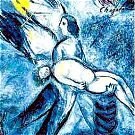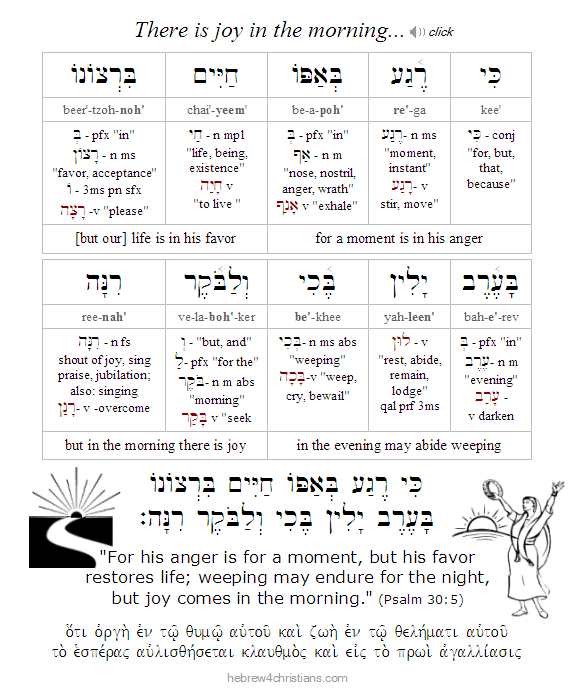|
In his appeal to God for help before confronting his estranged brother Esau, Jacob prayed: "I have been diminished (קָטנְתִּי) by all the kindness and all the truth you have done for your servant" (Gen. 32:11). Jacob was "made small" through the revelation of God's love and truth, and the focus shifted away from himself to God: "He must increase, but I must decrease" (John 3:30). Jacob's subsequent wrestling with the angel pictured birth pangs, the throes of his spiritual rebirth. Rashi notes that the word translated "wrestled" (i.e., va'ye'avak: וַיֵּאָבֵק, Gen. 32:24) is related to the idea of "raising the dust" (i.e., avak: אָבָק), which suggests resurrection from the dust of death. The struggle – the deathmatch – was to bury old Jacob and to raise him up as "Israel," a prince of God the King.
קָטנְתִּי מִכּל הַחֲסָדִים וּמִכָּל־הָאֱמֶת
אֲשֶׁר עָשִׂיתָ אֶת־עַבְדֶּךָ
kah·tohn'·tee · mee·kohl · ha·cha·sah·deem · oo·mee·kohl · hah·e·met
a·sher · a·see'·ta · et - av·de'·kha

"I am not worthy of the least of all the deeds of love and faithfulness
that you have done for your servant."
(Gen. 32:10)
Yeshua told us we must "forget ourselves" in order to discover what really matters: "If anyone would come after me, let him deny himself and take up his cross and follow me. For whoever would save his life will lose it, but whoever loses his life for my sake will find it" (Matt. 16:24-25). Note that the phrase translated "deny himself" comes from a Greek verb (ἀπαρνέομαι) that means "to affirm that you have no acquaintance or connection with someone," and is the same verb used when Peter denied the Messiah (from α-, "not," + ῥέω, "to speak"). To deny yourself, then, means to be willing to disregard your own personal interests in a given moment -- to "betray" the selfish impulse that seeks to rule the ego in your daily life. It is a "putting off" of the old nature and a "putting on" of the new (Eph. 4:22-24). Put positively, denying yourself means "forgetting yourself" because you are overwhelmed with God's great love for your soul, and therefore you no longer "know yourself" according to the flesh but according to the Spirit of God (2 Cor. 5:16-17).
Hebrew Lesson
Psalm 30:5 reading (click):
|



